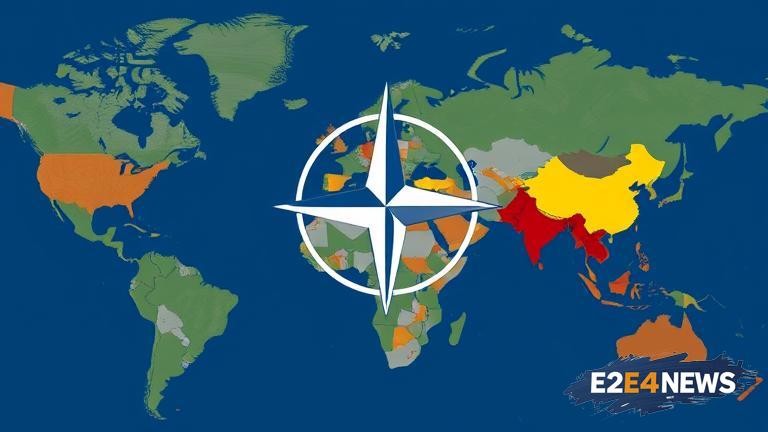In a significant move to bolster its collective defense capabilities, the North Atlantic Treaty Organization (NATO) has initiated a comprehensive effort to coordinate arms deliveries to its allied nations. This strategic initiative aims to enhance the interoperability and readiness of NATO member states, allowing them to respond more effectively to emerging security threats. The coordination of arms deliveries is particularly focused on weapons systems and military equipment purchased from the United States, a key NATO ally and major defense supplier. By facilitating the efficient transfer of these assets, NATO seeks to strengthen its overall military posture and reinforce its commitment to the defense of its member states. The move is also expected to foster greater cooperation and collaboration among NATO allies, promoting a more unified and cohesive approach to regional and global security challenges. As global tensions continue to rise, the importance of NATO’s role in maintaining stability and security has never been more critical. The alliance’s efforts to enhance its military capabilities and coordination are seen as essential in addressing the complex and evolving threats posed by adversaries such as Russia and China. NATO’s Secretary-General has emphasized the need for the alliance to remain vigilant and proactive in the face of these challenges, underscoring the importance of continued investment in defense and security. The coordination of arms deliveries is a key component of this strategy, enabling NATO member states to acquire and deploy the necessary military capabilities to deter and respond to potential threats. The process involves close collaboration between NATO, its member states, and the US government, ensuring that the delivery of arms and equipment is carried out in a timely and efficient manner. This cooperation is facilitated through various mechanisms, including regular consultations, joint planning, and the sharing of intelligence and best practices. By leveraging these efforts, NATO aims to create a more integrated and effective defense framework, capable of addressing the full spectrum of security challenges facing its member states. The initiative has been welcomed by NATO allies, who recognize the importance of enhancing their collective defense capabilities in the current strategic environment. The US government has also expressed its support for the effort, highlighting the value of NATO as a cornerstone of regional and global security. As the coordination of arms deliveries continues to evolve, NATO is expected to play an increasingly important role in shaping the global security landscape. The alliance’s commitment to defense and security cooperation is seen as a key factor in maintaining stability and promoting peace in the face of rising global tensions. In conclusion, NATO’s coordination of arms deliveries represents a significant step forward in the alliance’s efforts to enhance its collective defense capabilities and address the complex security challenges of the 21st century. By fostering greater cooperation and collaboration among its member states, NATO is well-positioned to maintain its position as a leading global security actor, promoting stability and security in the years to come. The initiative is a testament to the enduring importance of NATO as a cornerstone of regional and global security, and its continued relevance in addressing the evolving threats and challenges of the modern era. As the global security landscape continues to evolve, NATO’s coordination of arms deliveries will remain a critical component of its overall strategy, enabling the alliance to respond effectively to emerging threats and maintain its commitment to the defense of its member states. The success of this initiative will depend on the continued cooperation and collaboration among NATO member states, as well as the alliance’s ability to adapt and evolve in response to changing security challenges. Ultimately, the coordination of arms deliveries represents a key aspect of NATO’s ongoing efforts to enhance its collective defense capabilities, promoting a more secure and stable world for generations to come.
